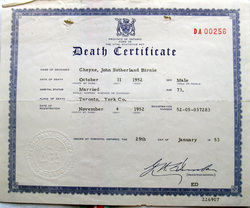
Here's a little bit of information on trusts that I prepared for the "Preparing for Departure"(TM) seminar that we're giving right now:
Trusts and Living Trusts
Trusts (and living trusts) are often sold (hard) as an alternative to wills and probate, even for people with modest amounts of property. Despite any hype via the media or that you may hear at an "estate planning seminar," living trusts are not for everyone. It depends on what you own and how you own it, as well as what you intend to happen when you die.
Trusts avoid probate (for the property held by the trust only) because the trust, not you, owns the property. In living trusts, you (the grantor) usually set yourself up as both the beneficiary and administrator (the trustee) of the trust, with a successor trustee and successor beneficiaries. While you're alive, you are the business agent of the trust, and you use the trust for your own benefit, such as to pay your bills. If you can’t act as trustee, the successor trustee uses the trust assets for your benefit while you are alive. Then, on your death, the trust assets are used for the benefit of, or turned over to, your successor beneficiaries. Because you did not own the assets solely in your name at your death, they do not need to go through probate.
One downside of trusts is that you need to spend money up front to have the trust created by an attorney and to prepare all the legal documents to change the ownership of your assets (your home, stocks, bank accounts, etc.) to the trust. If you miss something, and you die with assets in your name, a probate may still be required on your death, which is why you still need a pour-over will to "pour" any remaining assets you forgot about into your trust.
The main problem with living trusts is that it's more complex for you to pay taxes, buy and sell things, and just generally to have this separate legal entity in place owning your stuff. It can also just be more expensive.
In fact, in one sense, trusts really don’t avoid probate—they just let you do it yourself while you are still alive, with the extra burden of making sure that every time some circumstance changes in your property or wishes, you do a little bit more probating.
I'm not saying nobody needs a trust. And trusts aren't all bad. I'm just saying that you shouldn't have a trust until you know what problem you are solving by having one, and what the alternatives were, and how much they cost, so that you could compare those alternatives to the care and feeding of the trust.
One reason that some people use them is that they learned about the big, big problems that can result from I call “home brew estate planning,” where people make their someone else a joint owner of their major property, just so that they can "avoid probate." This is often a disastrously bad idea, so if a trust keeps you from doing that, it's a good thing.
For example, if you make your daughter a joint owner with right of survivorship, she can move in with you, she can stop you from selling by refusing to sign off on the deed of sale, and you cannot change your mind and take her off the deed unless she agrees. And if she gets into trouble with debt or legal judgments against her for accidentally injuring someone, you may find yourself co-owning property with someone you never intended.
But you don't need a trust to avoid the home brew estate planning problem. Between Oregon's recently adopted "Transfer on Death Deeds" and a will, you can pretty much do everything you need to do without the bother of a trust.
 RSS Feed
RSS Feed
